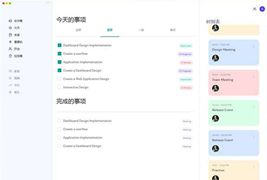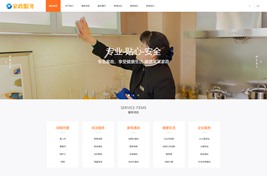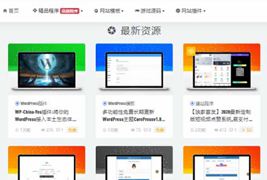聊聊怎么利用angular Material做统计表格
3328
怎么利用angular Material做统计表格?下面本篇文章给大家介绍一下用angular Material 做统计表格的方法,希望对大家有所帮助!

用angular Material 做统计表格
安装 Angular Material、组件开发工具 (CDK) 和 Angular 动画库,并运行代码原理图
ng add @angular/material
表格原理图将创建一个组件,它可以渲染出一个预置了可排序、可分页数据源的 Angular Material。
ng generate @angular/material:table texe1
然后在这的基础上进行修改。
该组件的html文件
<div class="mat-elevation-z8">
<table mat-table class="full-width-table" matSort aria-label="Elements">
<!-- Id Column -->
<ng-container matColumnDef="id">
<th mat-header-cell *matHeaderCellDef mat-sort-header>序号</th>
<td mat-cell *matCellDef="let row">{{row.id}}</td>
</ng-container>
<!-- Name Column -->
<ng-container matColumnDef="name">
<th mat-header-cell *matHeaderCellDef mat-sort-header> 岩土名</th>
<td mat-cell *matCellDef="let row">{{row.name}}</td>
</ng-container>
<!-- num1 Column -->
<ng-container matColumnDef="num1">
<th mat-header-cell *matHeaderCellDef mat-sort-header> 期望数量</th>
<td mat-cell *matCellDef="let row">{{row.num1}}</td>
</ng-container>
<!-- num2 Column -->
<ng-container matColumnDef="num2">
<th mat-header-cell *matHeaderCellDef mat-sort-header> 当前数量</th>
<td mat-cell *matCellDef="let row">{{row.num2}}</td>
</ng-container>
<tr mat-header-row *matHeaderRowDef="displayedColumns"></tr>
<tr mat-row *matRowDef="let row; columns: displayedColumns;"></tr>
</table>
<!-- 控制表格数据的显示长度 -->
<mat-paginator #paginator
[length]="dataSource?.data?.length"
[pageIndex]="0"
[pageSize]="10"
[pageSizeOptions]="[5, 10, 17]"
aria-label="Select page">
</mat-paginator>
</div>该组件的texe1-datasource.ts文件
import { DataSource } from '@angular/cdk/collections';
import { MatPaginator } from '@angular/material/paginator';
import { MatSort } from '@angular/material/sort';
import { map } from 'rxjs/operators';
import { Observable, of as observableOf, merge } from 'rxjs';
// TODO: Replace this with your own data model type
export interface Texe1Item {
name: string;
id: number;
num1: number;
num2: number;
}
// TODO: replace this with real data from your application
const EXAMPLE_DATA: Texe1Item[] = [
{id: 1, name: '粉质粘土', num1:1000, num2:100,},
{id: 2, name: '淤泥质粉质粘土', num1:1000, num2:100,},
{id: 3, name: '粘土', num1:1000, num2:100,},
{id: 4, name: '粘质粉土', num1:1000, num2:100,},
{id: 5, name: '淤泥质粘土', num1:1000, num2:100,},
{id: 6, name: '圆砾(角砾)', num1:1000, num2:100,},
{id: 7, name: '中砂', num1:1000, num2:1000,},
{id: 8, name: '有机质土', num1:1000, num2:100,},
{id: 9, name: '泥炭质土A', num1:1000, num2:100,},
{id: 10, name: '泥炭质土B', num1:1000, num2:100,},
{id: 11, name: '砂质粉土', num1:1000, num2:100,},
{id: 12, name: '粉砂', num1:1000, num2:100,},
{id: 13, name: '细砂', num1:1000, num2:100,},
{id: 14, name: '粗砂', num1:1000, num2:100,},
{id: 15, name: '砾砂', num1:1000, num2:100,},
{id: 16, name: '卵石(碎石)', num1:1000, num2:100,},
{id: 17, name: '漂石(块石)', num1:1000, num2:100,},
];
/**
* Data source for the Texe1 view. This class should
* encapsulate all logic for fetching and manipulating the displayed data
* (including sorting, pagination, and filtering).
*/
export class Texe1DataSource extends DataSource<Texe1Item> {
data: Texe1Item[] = EXAMPLE_DATA;
paginator: MatPaginator | undefined;
sort: MatSort | undefined;
constructor() {
super();
}
/**
* Connect this data source to the table. The table will only update when
* the returned stream emits new items.
* @returns A stream of the items to be rendered.
*/
connect(): Observable<Texe1Item[]> {
if (this.paginator && this.sort) {
// Combine everything that affects the rendered data into one update
// stream for the data-table to consume.
return merge(observableOf(this.data), this.paginator.page, this.sort.sortChange)
.pipe(map(() => {
return this.getPagedData(this.getSortedData([...this.data ]));
}));
} else {
throw Error('Please set the paginator and sort on the data source before connecting.');
}
}
/**
* Called when the table is being destroyed. Use this function, to clean up
* any open connections or free any held resources that were set up during connect.
*/
disconnect(): void {}
/**
* Paginate the data (client-side). If you're using server-side pagination,
* this would be replaced by requesting the appropriate data from the server.
*/
private getPagedData(data: Texe1Item[]): Texe1Item[] {
if (this.paginator) {
const startIndex = this.paginator.pageIndex * this.paginator.pageSize;
return data.splice(startIndex, this.paginator.pageSize);
} else {
return data;
}
}
/**
* Sort the data (client-side). If you're using server-side sorting,
* this would be replaced by requesting the appropriate data from the server.
*/
private getSortedData(data: Texe1Item[]): Texe1Item[] {
if (!this.sort || !this.sort.active || this.sort.direction === '') {
return data;
}
return data.sort((a, b) => {
const isAsc = this.sort?.direction === 'asc';
switch (this.sort?.active) {
case 'name': return compare(a.name, b.name, isAsc);
case 'id': return compare(+a.id, +b.id, isAsc);
default: return 0;
}
});
}
}
/** Simple sort comparator for example ID/Name columns (for client-side sorting). */
function compare(a: string | number, b: string | number, isAsc: boolean): number {
return (a < b ? -1 : 1) * (isAsc ? 1 : -1);
}该组件的texe1.component.ts文件
import { AfterViewInit, Component, ViewChild } from '@angular/core';
import { MatPaginator } from '@angular/material/paginator';
import { MatSort } from '@angular/material/sort';
import { MatTable } from '@angular/material/table';
import { Texe1DataSource, Texe1Item } from './texe1-datasource';
@Component({
selector: 'app-texe1',
templateUrl: './texe1.component.html',
styleUrls: ['./texe1.component.css']
})
export class Texe1Component implements AfterViewInit {
@ViewChild(MatPaginator) paginator!: MatPaginator;
@ViewChild(MatSort) sort!: MatSort;
@ViewChild(MatTable) table!: MatTable<Texe1Item>;
dataSource: Texe1DataSource;
/** Columns displayed in the table. Columns IDs can be added, removed, or reordered. */
displayedColumns = ['id', 'name','num1','num2'];
constructor() {
this.dataSource = new Texe1DataSource();
}
ngAfterViewInit(): void {
this.dataSource.sort = this.sort;
this.dataSource.paginator = this.paginator;
this.table.dataSource = this.dataSource;
}
}最后再app.component.html文件中进行显示。
<app-texe1></app-texe1>
效果图:

本文网址:https://www.zztuku.com/detail-12485.html
站长图库 - 聊聊怎么利用angular Material做统计表格
申明:本文转载于《CSDN》,如有侵犯,请 联系我们 删除。








您还没有登录,请 登录 后发表评论!
提示:请勿发布广告垃圾评论,否则封号处理!!